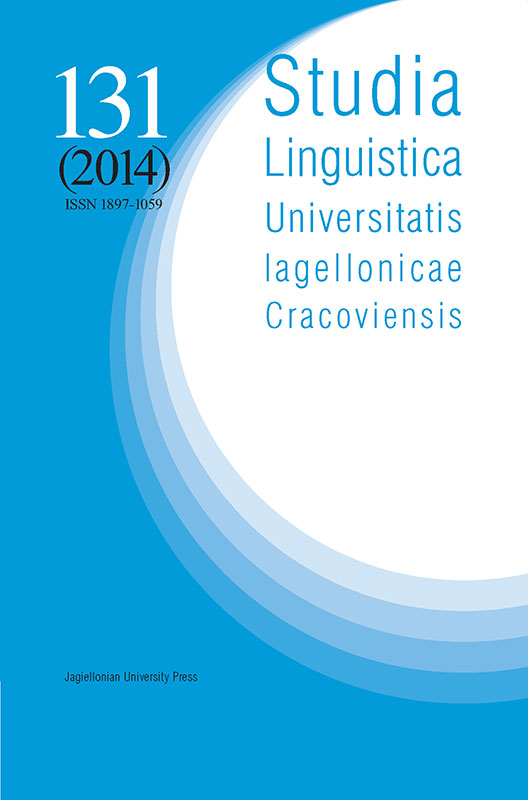Everything must have its place: Accent accommodation in Modern Welsh borrowings from English
Everything must have its place: Accent accommodation in Modern Welsh borrowings from English
Author(s): Anita Buczek-ZawiłaSubject(s): Language and Literature Studies, Theoretical Linguistics, Applied Linguistics
Published by: Wydawnictwo Uniwersytetu Jagiellońskiego
Keywords: Welsh; word-stress; Loan phonology; adaptation
Summary/Abstract: Wales has been in contact with English since as early as the 12th century, with the English language exerting regular influence on the indigenous Welsh-language community since the 14th century. Since the earlier times of contact the two languages have interacted, mutually influencing each other to a differing and asymmetrical degree. The situation is that of widespread bilingualism, with everyday occurrences of natural code-switching between Welsh and English, as well as constant interaction and mutual influence of one language on the other, most notably in the form of borrowing and substratum patterns, not restricted to the area of the lexical stock. Within the lexical sphere, however, there is evidence that borrowing from English must have begun as early as the Old English period; and that the process is in full force today. The older borrowings are not straightforwardly so noticeable or recognisable since they have undergone substantial phonological modification and adaptation to the native system. One of these modifications has concerned the suprasegmental feature of word stress. The adaptation of Anglicisms at the segmental level has been investigated before, while the accent accommodation to the Welsh pattern has only occasionally been noticed or commented upon. And yet, since there exists a systemic difference between the two phonological systems in that in English the word-accent is quantity sensitive, whereas in Welsh it is fixed (mostly) to the penultimate syllable, one can expect a considerable amount of conflicting points and necessary adjustments to eliminate illicit metrical structure. The research into these issues appears to suggest that we cannot talk about mechanical inclusion of borrowed words into the word-stress pattern functioning in Modern Welsh, as will hopefully become clear after examination of the data set. It is to such issues that this paper is going to be devoted.
Journal: Studia Linguistica Universitatis Iagellonicae Cracoviensis
- Issue Year: 131/2014
- Issue No: 4
- Page Range: 335-351
- Page Count: 17
- Language: English

